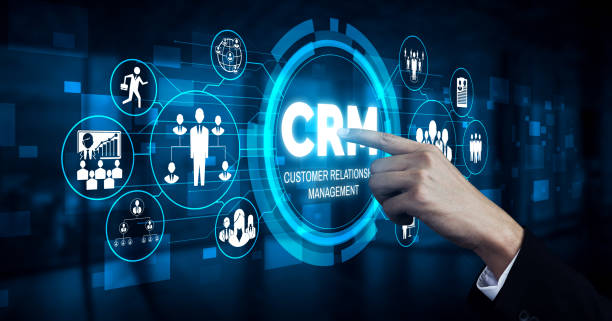
- March 27 2025
- SFI Solution Team
How CRM Integrations Drive Better Customer Retention Strategies
In the current competitive business environment, retaining customers is just as important as attracting new ones. Companies allocate substantial resources to acquire new clients, yet the key to sustainable profitability is fostering long-term relationships. A highly effective strategy for enhancing customer retention is the implementation of a well-integrated Customer Relationship Management (CRM) system. By utilizing CRM integrations effectively, organizations can deliver smooth, personalized, and proactive customer experiences that promote loyalty and encourage ongoing engagement.
The Role of CRM in Customer Retention
CRM systems are designed to help businesses manage customer interactions, track behaviors, and deliver personalized experiences. A well-integrated CRM acts as a central repository of customer data, making it easier for businesses to understand their customers’ needs and respond accordingly.
How CRM Integrations Enhance Customer Retention
1. Centralized Customer Data for Personalized Experiences
A CRM system integrates data from multiple touchpoints, including email, social media, website interactions, and customer support. This consolidated view allows businesses to personalize their interactions, ensuring customers receive relevant content, recommendations, and offers based on their preferences and purchase history.
2. Automated Follow-Ups and Customer Engagement
Automated workflows and AI-driven follow-ups help businesses stay connected with customers at the right time. By integrating CRM with marketing automation tools, businesses can send timely reminders, nurture leads, and re-engage inactive customers through personalized emails, SMS, or social media messages.
3. Improved Customer Support with CRM Helpdesk Integration
Integrating CRM with customer support platforms ensures seamless service. Support teams can access complete customer histories, enabling them to resolve issues efficiently and enhance customer satisfaction. Features like automated ticketing, chatbots, and AI-driven recommendations further streamline support processes.
4. Loyalty Program Integration for Enhanced Retention
Loyalty programs are essential for customer retention. Integrating CRM with loyalty management tools allows businesses to track reward points, offer personalized discounts, and encourage repeat purchases. Automated alerts notify customers about special offers, strengthening their engagement with the brand.
5. Data-Driven Insights for Predictive Analytics
CRM systems integrated with analytics tools help businesses predict customer behavior. By analyzing customer trends, churn rates, and engagement patterns, organizations can implement proactive strategies to retain customers before they decide to leave. AI-powered CRM integrations can even suggest personalized retention strategies based on customer sentiment analysis.
6. Social Media Integration for Real-Time Engagement
Social media plays a pivotal role in customer retention. CRM integration with social media platforms enables businesses to monitor customer interactions, respond to inquiries promptly, and maintain an active presence. Social listening tools integrated into CRM systems provide insights into customer sentiments, helping brands address concerns before they escalate.
7. Seamless E-commerce and Payment Integrations
For e-commerce businesses, integrating CRM with payment gateways and order management systems ensures a seamless shopping experience. Customers receive order confirmations, shipping updates, and payment reminders, improving overall satisfaction and trust.
8. Customer Feedback and Survey Integration
Understanding customer needs is crucial for retention. CRM integrations with feedback and survey tools allow businesses to collect valuable insights, measure customer satisfaction, and take necessary actions to improve services. Regular surveys help businesses stay aligned with customer expectations.
Best Practices for CRM Integration to Maximize Retention
-
Choose Scalable CRM Solutions : Opt for a CRM that supports seamless integrations with third-party tools to ensure future scalability.
-
Leverage AI and Automation : Use AI-driven chatbots, predictive analytics, and automated workflows to enhance customer interactions.
-
Ensure Data Accuracy and Security : Maintain clean and secure customer data to build trust and ensure compliance with data protection regulations.
-
Train Teams for Optimal Usage : Educate employees on CRM functionalities to maximize efficiency and improve customer experiences.
-
Monitor Key Retention Metrics : Track customer engagement, churn rates, and satisfaction scores to refine retention strategies continually.
Conclusion
A well-integrated CRM is a game-changer in customer retention strategies. By leveraging automation, analytics, and personalized engagement, businesses can build stronger relationships, reduce churn, and enhance customer loyalty. Investing in the right CRM integrations ensures a seamless customer experience, ultimately leading to long-term business success.
Implementing CRM integrations tailored to your business needs can significantly improve retention rates and customer satisfaction. If you’re looking to enhance your CRM strategy, start by evaluating your current system and exploring integrations that align with your customer retention goals.
Previous Post